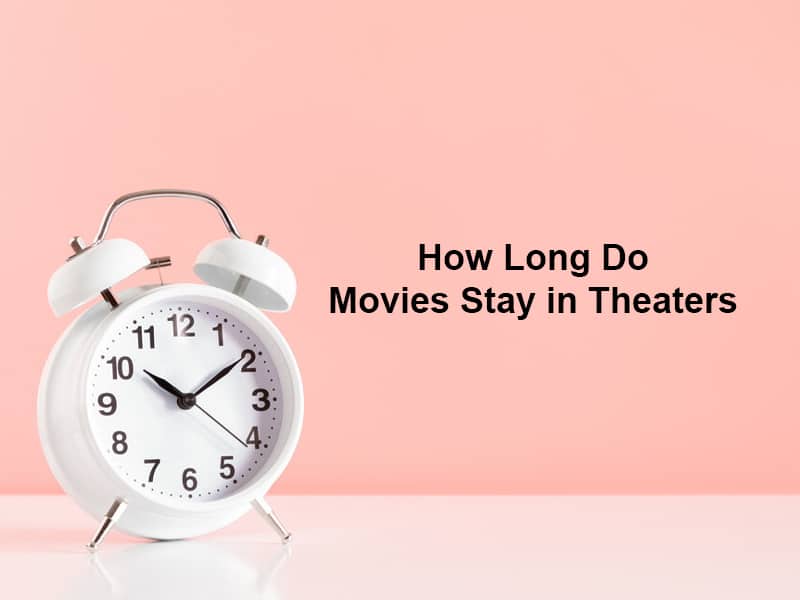Exact Answer: 2-24 Weeks
When it comes to the movies, we all want to rush out and see the newest one in a theater. This is especially true if we’ve been long anticipating the plot or it has special CGI that looks better on a big screen.
However, life gets busy and we don’t always get to see our select picks right away. This is why people tend to plan in advance. There’s nothing worse though than waiting for a certain weekend and finding out that your movie isn’t playing in theaters anymore.
The following is a guide regarding How long movies stay in theaters and why.

How Long Do Movies Stay in Theater?
According to CNBC, movies tend to stay in theaters for four weeks on average (https://www.cnbc.com/2015/11/17/why-movies-are-sometimes-here-and-gone-in theaters.html) If you are looking to go out and get to that flick, then you’d better aim at getting to the theater within the first month.
Don’t delay too long after that, or chances are, your movie will be gone. At this point, you will have to wait again until it is released on a movie streaming platform.
These statistics are a little bit more complicated, according to CNBC. In the first four weeks, the movies will be playing at 2000 theaters on average. Then, after that, it trickles down to 1,000 theaters for about a week after that.
However, the popularity of the movie will determine when they pull it. If the movie doesn’t do well, then expect to only see it in theaters for about two weeks.

It’s all about how long the agreement to run the movie is for. The minimum is two weeks and sometimes it is three weeks.
| Movie Type | Time in Theater |
| Flop | 2 Weeks |
| Hit | 3 Weeks and up |
| Super-hit | 4 Weeks and up |
| Blockbuster | 20-24 weeks |
Why Are There These Certain Time Limits?
Of course, what used to determine how long a movie would run for isn’t exactly what stipulates its run now. People used to go to the movies a lot more frequently before everything eventually became available at the click of a button on streaming platforms like Netflix.
In fact, as Mashable reports, some people even believe that the end of movies’ runs in theaters might be imminent (https://mashable.com/2017/04/04/movies-theaters-dying-cinemacon-pvod/).

The business is relatively new, although it has been around for the length of time that everyone on earth has been alive. It started in 1895 in Paris playhouses. Back then, the Lumière brothers were putting out all the films.
Now, major studios such as Disney are in the works of new deals.
Can you imagine a world where you can get the newest release right away if you are willing to pay a premium price? These studios can. Soon in the future, you will be able to get your new movie releases for around $30 to $50 per release.
This seems like a far off future, but soon moviegoers might be flocking to the comfort of their couches to get a first look.

The changes in the industry are quite eye-opening and concerning
Yes, it’s definitely concerning
Very informative article, thank you for sharing.
I agree, I learned a lot from this article
Yes, this is a well-explained and interesting article
It’s unfortunate that the run time of movies in theaters is declining
Yes, it’s a sign of the times
It’s a sad reality for the movie industry
I hope the future of movie streaming doesn’t mean the end of theaters
It’s a possibility, but hopefully theaters stick around
The future of movie releases seems uncertain considering the changes in the industry
Yes, it will be interesting to see what happens
The industry is definitely evolving rapidly
It’s fascinating to see how the movie market is changing
Yes, it’s changing rapidly
It’s definitely interesting to see the evolution of the movie industry
This article brings up some interesting points about the future of movie releases
I agree, it’s definitely something to think about
This is a well-researched and thought-provoking article
The article provides valuable insights into the movie industry
I agree, it’s definitely thought-provoking
Movies’ runs in theaters are ending and that’s sad.
It’s sad to see how people are not going to movie theaters anymore
I can’t imagine a world without movie theaters
This article gives good insight into the movie theater industry
Absolutely, this article was very eye-opening